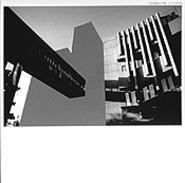Warp 10+1 Influences, Classics, Remixes
(Matador)
When it comes to discovering electronica that's on the cutting edge, Steve Beckett and Rob Mitchell, the owners of Warp Records, could give a seminar on the subject. For the past decade, Warp Records, the home of artists like Aphex Twin, Squarepusher, Plaid, and Plone, has nurtured electronica's more unconventional artists. Even if the label hasn't yielded a hit (unless you count Aphex Twin's "Windowlicker," which became a cult item on account of its video, which was so risqué that MTV reportedly wouldn't even run ads for it), it has had an enormous influence on both the electronica underground and on more mainstream artists (Trent Reznor, in particular).
For this six-disc retrospective (sold as three double CDs), Beckett and Mitchell have mined their vaults for unreleased cuts that, in their day, had a significant impact on the burgeoning U.K. club scene. Divided into three categories ("influences," "classics," and "remixes"), this bleep-happy collection, which is being released domestically on Matador Records, presents a unique vision of electronica's past and imagines what its future might look like.
The first two discs ("influences") consist of out-of-print tracks from the late '80s that influenced Beckett and Mitchell's aesthetic. The disco-like vocals of 808 State's "Let Yourself Go (303 Mix)" clearly sound dated, but are appealing in the same way that old video games and retro fashions are. And yet not all the material here gets by on nostalgia -- A Guy Called Gerald's chant-filled "Voodoo Ray" and Koro Koro's proto-jungle "No Smoke" actually sound ahead of their time.
The second pair of discs ("classics") feature early Warp tracks from Nightmares on Wax, LFO, and others. The exuberant hip-hop of DJ Mink's "Hey! Hey! Can U Relate?" -- a track that's ready-made for a Chemical Brothers revision -- recalls early Eric B and Rakim. The third set of discs ("remixes") is perhaps the most accessible of the bunch. Featuring remixes by Stereolab, Plaid, Tortoise's John McEntire, Mogwai, Spiritualized, and Jim O'Rourke -- all of whom are undoubtedly Warp enthusiasts -- it suggests that the label has not only made a significant contribution to electronica but also helped shape the face of the current indie rock scene. -- Jeff Niesel
Eric Dolphy
The Illinois Concert
(Blue Note)
Along with John Coltrane and Ornette Coleman, Eric Dolphy was one of the great woodwind players to emerge in the late '50s and early '60s. In fact, he recorded with both Coltrane and Coleman. Known primarily as an innovative alto saxophonist, Dolphy also was a flautist and bass clarinetist; he practically reinvented the bass clarinet as a jazz instrument.
A Los Angeles native, Dolphy was born in 1928 and recorded initially with the Roy Porter Big Band in 1949. Even then he was an impressive soloist with fine chops, though later they'd become phenomenal. His legato alto solos were marked by Charlie Parker and L.A.'s Sonny Criss, who developed his own distinctive variant of Parker's approach. In the late '50s Dolphy made an impact nationally with Chico Hamilton's quintet. During 1960 he moved to New York and joined Charlie Mingus's band. From 1961-'64 Dolphy often led his own groups and recorded as a leader and sideman for Prestige, Blue Note, FM, and Impulse. After moving to Paris in 1964, he suddenly died in Berlin, probably due to the effects of diabetes.
The well-schooled Dolphy excelled in contexts ranging from post-bop to third stream to free jazz. Here he's heard at the University of Illinois in 1963, with a band including pianist Herbie Hancock, bassist Eddie Khan, and drummer J.C. Moses. During "The Red Planet" they're joined by the University of Illinois Brass Ensemble, and on "G.W." they perform with the University's big band. Dolphy wrote the impressive, classically influenced charts on these two pieces, but they feature extended solos.
On the first three tracks Dolphy's on bass clarinet, performing unaccompanied on "God Bless the Child." His work on the instrument is, especially then, incredible. Other jazzmen could barely play it, let alone with the agility of a tenor sax. He turns in fluent, idea-rich flute work on the uptempo blues "South Street Exit," although he's unfortunately off-mic. On the CD's final three tracks Dolphy turns in sinuous, hard-swinging alto work. Overall, his playing here is laudable, though marred to a certain extent by repetitiveness -- he uses certain pet phrases far too often. Hancock is wonderfully creative, and it's unfortunate that he and Dolphy, who have such an excellent rapport, never made a studio recording together. -- Harvey Pekar
311
Soundsystem
(Capricorn)
Even with their general surfer/ fratboy/white-rapper annoyances tuned down, there's still plenty to dislike about dub/metal/hip-hop quintet 311. For one thing, the thirteen songs on their fifth album, Soundsystem, all sound alike. Whether affectedly toasting or baking in the California sun via some funk-lite groove, there's not much diversity among the tunes here, and once the crew actually jams, the runaway ride heads straight for dullsville.
Thank singer Nick Hexum and his droning, artificial island vibe for much of this mess. Unlike, say, Sublime, who mined similar territory with much greater results, 311 often seems a complete culture away from the dub they're mimicking. It doesn't help that the rest of the band (save competent DJ/vocalist SA Martinez) chug away at their instruments as if they're not really quite sure exactly what kind of band they are: metal, funk, hip-hop, reggae, or some twisted combination of all. Soundsystem is so ineffectual in nearly everything it does that it discredits the potentially interesting (if played-out) amalgam it suggests.
Their forays into neo-metal are the least offensive of the bunch. While the testosterone rush of Limp Bizkit, Korn, et al makes 311 sound like little girls playing way out of their league, there is some genuine thug-like crunch to these grooves. But once the guitars are edged out of the way for Hexum and his pale takes on a culture that's more convenient than authentic, there's not much left to like. Even the jumpy "Come Original," Soundsystem's least-awkward mix of the kitchen-sink aesthetic, sounds forced and, frankly, like just about everything else 311 has put on the modern rock charts the past few years.
So boogie on, reggae boys, to the riddims of the land. Like 1997's Transistor, Soundsystem tries to be too many things at one time. Soundsystem isn't stuffed to fill like Transistor, but there's not much of a leap forward here either. And when they shoot for a genre-busting riff or an exploratory dub session, they come off as lumbering poseurs, tourists in the land of the skilled. And just plain boring. -- Michael Gallucci
Jon Spencer Blues Explosion
Sideways Soul
(K Records)
Xtra Acme USA
(Matador)
"The music ain't loud enough," dub narcotician Calvin Johnson repeatedly bellows, sounding like a heavily sedated Johnny Cash. Meanwhile, the workhorse rhythm section of pugilist drummer Russell Simins and guitarists Jon Spencer and Judah Bauer knocks around mutant rhythm and blues on the Sideways Soul album opener, "Banana Version." It's a meeting of the minds as much as it is a meeting of the coasts' sloth-like defilers of America's musical traditions. R&B, blues, rock and roll, roadhouse country, and all its offshoot variants are lovingly maligned on this nine-song shitfit, which props the JSBX of NYC up behind the baritone bellow of nefarious K Records impresario Johnson and the impeccable musicianship of organist Jeff Smith. And that's a good thing -- perhaps more so than the previous couple of "official" Blues Explosion releases.
For example, Xtra Acme USA, the guest-filled collection of outtakes and remixes from the JSBX's previous album, Acme, suffers under the weight of its inconsistency and distracted songwriting. While dirty-soul legend Andre Williams, repentant techno DJ Moby, and remixologist David Holmes pitch in glowing cameos, there's just not enough of that trademark Spencer grunt and Simins's sweaty, thumping beats within to bring Xtra Acme USA up to standard. Sure, the opener, "Wait a Minute," gets nice 'n' sleazy on a Stones-styled riff and harmonica wail, and Williams sounds perfectly at home fronting the group's ode to perversity on "Lap Dance," but all the dreck filling out the nineteen-song album makes it almost as tedious to wade through as the JSBX's lugubrious opus, Acme.
Many of the Blues Explosion's recent albums (especially the Acme pair) have presented a band obsessed with remaining in touch with the latest nearly hip movement in music circles -- to such an extent that their records lose focus of what made the Blues Explosion explosive in the first place: propulsive, numbskull rock and soul. However, under auspices of the Dub Narcotic Sound System, the JSBX sounds free to funk around with the maniac rhythms, devolved scales, and dorky humor that made the JSBX a blast from the get-go. The resulting Sideways Soul is smudged, smeared, and slovenly, just like it oughta be. -- Dave Clifford













